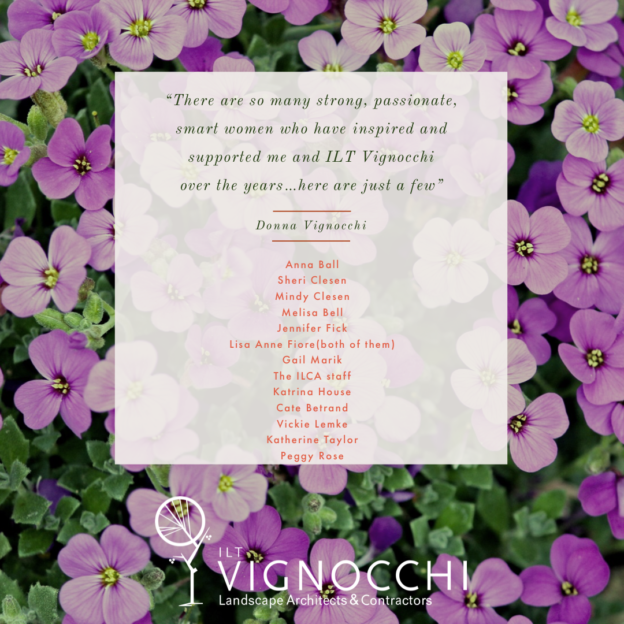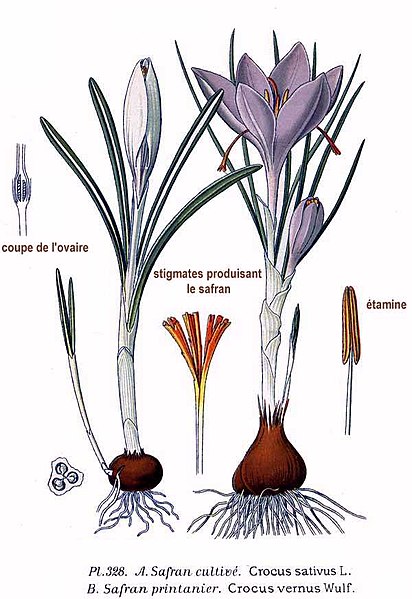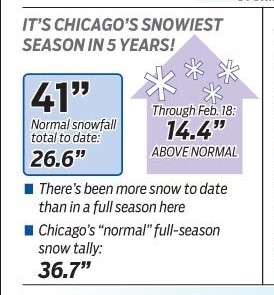And a special shout out to all the ADPis around the world
#firstandfinest


And a special shout out to all the ADPis around the world
#firstandfinest

 Bill MacReynolds, owner of Hooks Nursery, was pivotal in my career. At the time he was acknowledged as one of the best growers and nurserymen in the business.He was always leery of academics in the field of horticulture and landscape architecture, and me being neither, he guided me through the true ins and outs of plant selection.
Bill MacReynolds, owner of Hooks Nursery, was pivotal in my career. At the time he was acknowledged as one of the best growers and nurserymen in the business.He was always leery of academics in the field of horticulture and landscape architecture, and me being neither, he guided me through the true ins and outs of plant selection.
One of his greatest joys was informing headstrong idealists who spent hours combing his fields for the perfect specimen that it was already sold.He once told me, “Harry, if you were to remove what you thought was the best tree in this row, logically wouldn’t there be another that would stand out as a specimen?” “Of course,” I replied, not wanting to upset my mentor.
He responded, “Well that’s why I save the best trees for people like you, because you understand the beauty in all plants. Every one is unique and has value.”
I’ve always remembered that, and tried to impart that wisdom on others. Finding beauty in everything has been a philosophy that has served me well.
Harry Vignocchi




When diving into the history of different plants it more often than not more interesting than the actual biological development of the plant. If you delve deeply enough it is about how the plant has moved throughout the world and it fits into history.
The crocus is no different. It was first cultivated and grown for a very precious commodity. Saffron. Crocus sativus is a fall blooming crocus that has been grown for over 3,500 years
starting in the Mediterranean, as seen in a fresco in Crete. In fact, according to legend the Greek Gods Zeus & Hura loved each other so passionately that the land where they lived burst open with crocuses.
The crocus first made its trek to the Netherlands from Constantinople via the Holy Roman Empire’s Ambassador in the 1560’s where it continued it’s cultivation throughout Europe. So coveted were they that they even made an appearance in one of Shakespeare’s sonnets.
There are approximately 80 varieties of Crocus, 40 of which that are cultivated. Each variety takes on the appearance of its ancestors where they were first grown. The alpine species, C. vernus, is the chief ancestor of the common garden crocus. Dutch yellow crocus (C. flavus), from stony slopes in southeastern Europe, is another popular spring species, as is C. biflorus,tinged purple and with yellow throat, sometimes striped, from the Mediterranean.
As winter slowly recedes and spring creeps to occupy its space these lovely darlings make their debut. A little wink at what bursts of life and color are yet to come. So keep a look out for natures promise for spring.

You hear it all the time. If you are gong to hire someone for a project in your place of business or you home…hire someone who knows what they are doing. Think about it, if you received the news that you required surgery, would you hire someone who had not been to medical school? Probably not.
The perception of the landscape industry has always been an uphill battle. Consumers often don’t consider the importance of professional degrees and certifications as a necessity. I assure you, I have heard enough horror stories to know that hiring an individual or organization with the correct qualifications will save you money and peace of mind in the long run.
We get at least two phone calls a year inquiring if we can fix something that a consumer has already paid for. Perfectly good money wasted for all sorts of reasons…drainage issues were never considered. Water can be one of the most quickly damaging elements to your property. There is always the frustrated person complaining about a walkway or patio that after one winter are failing, most probably because the base layer was improperly considered and installed. Oh and that one year warranty they told you about…good luck getting them to return the call.
Maintenance is a huge issue. If pruning isn’t correctly done it can and mostly likely KILL your plants. When you invest in a new garden and don’t cultivate and weed properly, the weeds WILL win. And believe it or not, there is a correct and incorrect way to mow grass.
I could go on and on, however I won’t. What I will do is let this wonderfully created and produced video do the talking. ILT Vignocchi and Montale Gardens are proudly featured in a branding video for our industry. It shows my fellow contractor’s pride in what they do, a down right love for their crafts. CLICK HERE TO WATCH THE VIDEO. I know you will enjoy it.

OK, raise your hand if you are one of us that feels like it is never going to stop snowing this winter. Mother Nature started us off with a bang in November with some light accumulations leading up to the big Thanksgiving blast that left seven to eleven inches on the ground in the northwest suburbs. Then she seemed to take a nap in December but woke up crabby and ready to wage weather war again in January; and she has been relentless ever since.

Snow accumulation totals for this winter are already more than a foot over our average for an entire winter, and we still have a month left before we can even start talking about spring. Along with all of this snow we have had more than our share of all of the other nasty weather elements Mother Nature keeps in her bag of tricks. Historic ice storms, a polar vortex that crushed century old temperature records, rain, sleet, freezing rain, hail, and yes, even graupel. In case you were wondering what graupel is, read on…

Ice storms don’t hit the Chicago area often because they require just the right combination of cold upper air, warm air above ground level and cold air right near the ground. But when they do happen, ice storms that leave less than an inch of ice on the ground can be much more disruptive than sleet, freezing rain, or snowstorms that leave similar amounts of precipitation.
But what exactly is the difference between rain, freezing rain, sleet, ice, etc. and why do we need so many terms for this winter precipitation. Whether or not precipitation remains snow or transitions to rain, freezing rain, sleet, hail, or graupel by the time it reaches the ground hinges on the temperature fluctuations the snowflakes may encounter as they travel through the layers of the atmosphere.
When the temperature between the ground and the clouds remains at or below the freezing mark (32F), precipitation will fall in the form of snow. It is possible for snow to fall when temperatures are above 32, as long as the layer of above-freezing air near the surface is rather shallow, not allowing the snowflakes to melt.
Sleet and freezing rain occur by a similar process but are different forms of precipitation. Sleet occurs when snowflakes melt into a raindrop in a wedge of warm air well above the ground and then refreeze in a layer of freezing air just above the surface. This results in frozen raindrops, or small ice pellets. Freezing rain occurs when the wedge of warm air aloft is much thicker, allowing the raindrop to survive until it comes in contact with the cold ground. A coating of ice then forms on whatever the raindrops contact. Freezing rain is by far the most dangerous because it forms a solid sheet of ice, as opposed to sleet that just has small ice pellets that quickly bounce off of the surface. Interestingy, sleet can even provide a little bit of traction for drivers, as opposed to the obvious dangers of a solid sheet of ice that forms from freezing rain.
And I have not forgotten, in case you were wondering what graupel is, graupel (snow pellets) forms when snowflakes are coated with a layer of ice. Graupel is typically white and opaque. Unlike hail or sleet, graupel is soft and can fall apart easily in your hand. Graupel is also usually smaller than hail, with a diameter of around 0.08-0.2 of an inch.
The demand for ice melt applications to remedy this onslaught of frequent, diverse precipitation has been high, exacerbated by the intermittent freeze/thaw cycles we have also seen that create melted runoff that refreezes overnight. The need for more salt/chemical applications has resulted in some difficulty on the part of the suppliers keeping up with the demand of contractors. Typically, suppliers are required to supply municipalities and transportation authorities first to ensure that the road ways are kept safe, leaving a high demand from contractors to take care of private properties. Higher demand can also mean higher prices, which you may see in the future.
If your budget has been blown up by the cost of clearing snow and keeping up with these applications, you are not alone. Commercial building managers, retail mall owners, and HOAs alike share in the budget pain that this winter is creating.
However, the safety of employees, residents, visitors, etc. and the ability of vehicles to effectively navigate around your property should always be paramount when balancing the cost considerations that must be confronted in the midst of a winter like this one.
Hang on though, two weeks ago, Punxsutawney Phil emerged from his burrow around 7:30 a.m. ET and did not see his shadow, predicting an early spring for us all. A member of Phil’s Inner Circle read from the groundhog’s prediction scroll to the cheers and applause from the crowd;
“Faithful followers, there is no shadow of me and a beautiful spring it shall be.”
As the legend goes, if Phil sees his shadow, he considers it an “omen” of six more weeks of bad weather and heads back into his hole. If it’s cloudy and he doesn’t, you can put away that winter coat sooner than expected. But of course, his predictions aren’t always correct. Statistically, you’re better off trying to decide what the rest of February and March will look like by flipping a coinsince Phil’s accuracy record is only 40%. At least with a coin you will be right half of the time.
Kevin T. Block

Boxwood are one of the most versatile and elegant of evergreen shrubs. They have very shallow roots, can tolerate most conditions and be used in both formal and informal settings. It are theses characteristics that make them so desirable today.
Their popularity is not new. Although grains for a species was found in England as far back as 7,000 B.C., they were destroyed during a Glacial epoch. They resurfaced around 4,000 B.C. in ancient Egyptian tombs. Their popularity surged at the height of the Roman Empire and throughout the Dark Ages, used as hedges and topiaries in Royal gardens.
One of the Boxwood’s most delightful and interesting facts is that it has historically been used to make boxes, chess pieces, printing using woodblocks, and musical instruments and parts, particularly form the strings and woodwind class and is still used for many of these purposes today.
It is a plant that seems almost too good to be true! Well almost. As of late our dear friend has had some issues, that many of you might have experienced. Several years ago we had an extremely cold Chicago winter with unusually light snow cover…and plants with shallow roots really rely on their winter blankets. As spring sprung, we noticed the loss of a lot of plant species…especially boxwood, yews, junipers and roses.
Boxwoods suffered another hit. Boxwood blight. It is a fungal disease that really has no treatment. The only course of action is to remove them from the nursery or landscape.
These plants of course need to be replaced, and replace them we are. Why is having to replace them so important to our tale? Well because Boxwoods are extremely slow growing, and as the demand increases due not only to popularity but a need to replace them, growers just cannot keep up. It is a difficult concept to explain to a property owner, but our current reality.
There are alternatives. They are not boxwoods, but they are options…”Green Mound’ Alpine Current, ‘Karen’s’ Azalea, Deutzia, and our owner’s favorite… Barberry. Peruse some of these favorites on our nursery’s website.
Many people say everything happens for a reason. Maybe this did. I like to think utilizing a different palette challenges our creativity and encourages diversifying our monoculture.
It is an amazing moment for ILT Vignocchi. We have been awarded a Gold Award from the Illinois Landscape Contractor’s Association (ILCA). It is one of two Gold Awards that we received this year. Below is a visual tour of the first project in Skokie, Illinois. Subscribe to our YouTube channel to explore old videos as well as new…let them inspire you to get outside. Dream of the possibilities. And most important. Call us NOW to help you create them.
Turning 50 is such a milestone for any business. Dips in the economy, increasing regulations, labor issues and shortages. There are so many ways a company can get off track. As I contemplate where we have been, of course I think of our unwavering reputation for integrity, artistry and quality. You consider the massive golf courses, Chicago Botanic Garden installations, as well as corporate and municipal work. I regard those residential projects that not only won awards but gave our employees such satisfaction and our customers heartfelt joy.
But to me it is more than that.
I don’t know if I have a memory when ILT didn’t exist. You see, as ILT turns 50, I will be turning 47. The memories of our company are like fabric woven into my life.
When I watch the countless trucks and trailers roll out of the yard at sunrise each and every morning I indulge the nostalgia of our company’s youth.
I remember Sorney Leahy who let me sit inside his desk drawer when I was very small and let me play with his phone. Or going to a job site with my dad on a Saturday. He’d hoist me up on his shoulders and then put me down so I could hug my Nono who was working with our men. A favorite is my mother who would spend hours picking up sticks before the maintenance crew came to our house so they would not have to bother.
50 years ago there were no computers. Dad used to spend countless nights drawing plans, scrunching up vellum with discarded ideas and yes, taking calls from his customers on his home phone.
I think life is different when you are in a family business. Of course it is hard and there are arguments, lots. But there is a short cut with family that makes it easier, because you know in the end, you will always love one another.